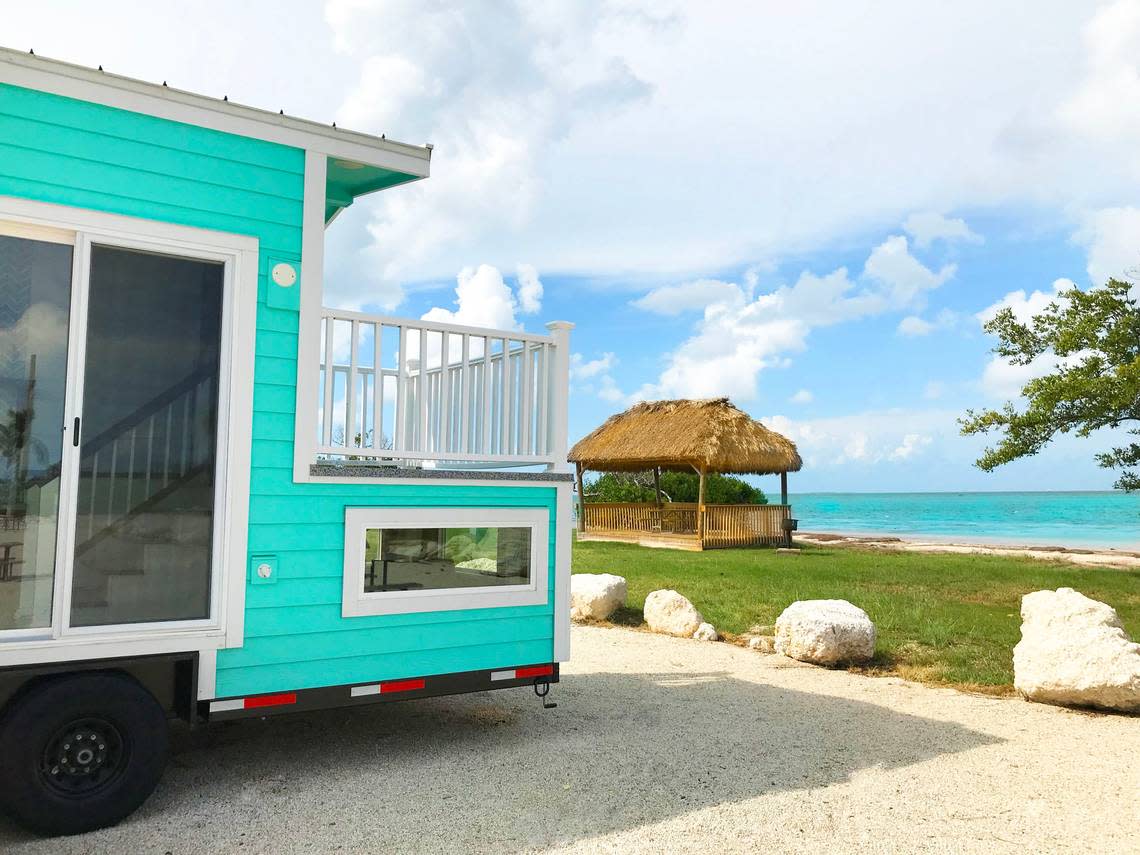Builders are coming out with smaller houses, but are they small enough for the market?

Builders are constructing their smallest houses in years, but they still may not be small enough for a significant portion of the population.
More than a third (38%) of the builders responding to a recent National Association of Home Builders poll said they built smaller houses last year, and 26% said they’re going smaller this year. The average size of new homes built in 2023 fell to 2,411 square feet — the smallest since 2010. And the NAHB expects the trend to continue as long as affordability remains a problem.
But another survey, this one from real estate investment company IPX 1031, indicates builders need to cut a lot more space from their models. Nearly three-quarters of the over 1,000 respondents said they would consider living in a tiny home, which is generally defined as 500 square feet or less.
Affordability was the main reason, of course, followed by the desire for a minimalist lifestyle and the lack of a need for a larger home.
DIY home building
Senior readers will no doubt remember when people bought houses right out of a Sears catalog. The old department store chain sold more than 70,000 mail-order houses, many of which are still standing.
Now you can buy a tiny house off Home Depot’s website. The bestseller is a 444-square-foot, two-bedroom, one-bath cottage priced just over $26,000. A smaller studio unit with one bath goes for about $19,000.
Delivered right to your driveway, the packages include a steel frame, which you have to assemble. You must provide a concrete slab, utility connections and all finish materials, including siding, roofing materials, exterior doors and windows. Local building code approvals are necessary, too.
The park factor
Who doesn’t want to live close to a park — especially in a city, where green space is at a premium? You’d think that residences in close proximity to a park would sell at higher prices because of the recreational and aesthetic benefits, but that’s not always the case.
In fact, new research published in the Journal of Housing Economics found just the opposite, at least in China, where the study focused. The study found that, despite the positive aspects of urban parks, nearby homes sold for 2% less than in other places. Proposed explanations included crime, congestion, air pollution and traffic noise.
Whether or not the same is true in U.S. cities, the study is certainly food for thought.
Cleanup time
Catching up on a couple of issues discussed in previous columns: Idaho is the latest state to ban so-called home equity theft, and Connecticut, Illinois, Louisiana and Minnesota are the latest to pass bills protecting homeowners against unfair fee agreements being filed as liens.
Idaho joins Nebraska, Maine and South Dakota in banning home equity theft — the term for local authorities keeping the excess proceeds from foreclosure sales — after the U.S. Supreme Court unanimously ruled last year that the practice is unconstitutional. (Several other states already had such laws on the books prior to the SCOTUS ruling.)
Taxing authorities can still foreclose on homeowners who fail to pay their property taxes. But if the foreclosed home sells for more than the owner owes, the difference belongs to the owner, not the taxman, the Supreme Court said. “The taxpayer must render unto Caesar what is Caesar’s, but no more,” Chief Justice John Roberts wrote.
Meanwhile, 30 states now outlaw the practice of filing exploitative real estate fee agreements in property records. Known as Non-Title Recorded Agreements for Personal Services (NTRAPS), the documents are used to prey on homeowners, who are offered small cash gifts in exchange for decades-long contracts for the exclusive right to sell the property.
The state laws against NTRAPS are all different, but generally they make NTRAPS unenforceable; restrict, prohibit and/or penalize their recording; and provide for their removal from the property records and the recovery of damages.
Ten states (so far) have also sued MV Realty, the Florida firm that persuaded hundreds of homeowners to sign 40-year listing contracts in exchange for cash payments of up to $5,000. The company then recorded the contracts as liens so that if a property was sold using another brokerage, MV still had to be paid a commission.
MV has filed for Chapter 11 bankruptcy protection in 34 states, which the U.S. bankruptcy trustee office has argued is a tactic to stall state prosecutors who have filed lawsuits against the company.
Lew Sichelman has been covering real estate for more than 50 years. He is a regular contributor to numerous shelter magazines and housing and housing-finance industry publications. Readers can contact him at lsichelman@aol.com.

